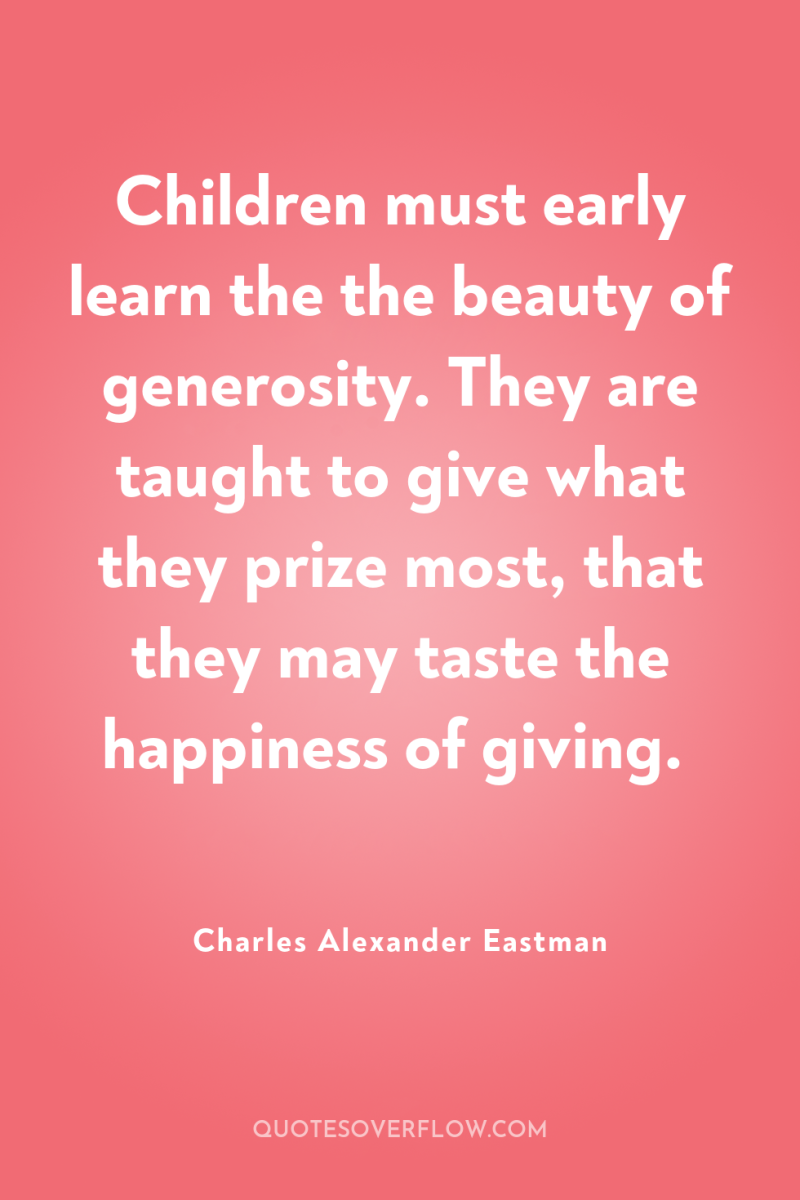The logical man must either deny all miracles or none.Charles Alexander Eastman
To the untutored sage, the concentration of population was the prolific mother of all evils, moral no less than physical. He argued that food is good, while surfeit kills; that love is good, but lust destroys; and not less dreaded than the pestilence following upon crowded and unsanitary dwellings was the loss of spiritual power inseparable from too close contact with one's fellow-men.Charles Alexander Eastman
The true Indian sets no price upon either his property or his labor. His generosity is limited only by his strength and ability. He regards it as an honor to be selected for difficult or dangerous service and would think it shameful to ask for any reward, saying rather: "Let the person I serve express his thanks according to his own bringing up and his sense of honor. Each soul must meet the morning sun, the new sweet earth, and the Great Silence alone! . What is Silence? It is the Great Mystery! The Holy Silence is His voice! .Charles Alexander Eastman

Children must early learn the the beauty of generosity. They are taught to give what they prize most, that they may taste the happiness of giving.Charles Alexander Eastman
Gradually it became known that the new race had a definite purpose, and that purpose was to chart and possess the whole country, regardless of the rights of its earlier inhabitants. Still the old chiefs cautioned their people to be patient, for, said they, the land is vast, both races can live on it, each in their own way. Let us therefore befriend them and trust their friendship. While they reasoned thus, the temptations of graft and self-aggrandizement overtook some of the leaders. .Charles Alexander Eastman
It was our belief that the love of possessions is a weakness to be overcome. Children must early learn the beauty of generosity. They are taught to give what they prize most, that they may taste the happiness of giving. . The Indians in their simplicity literally give away all that they have–to relatives, to guests of other tribes or clans, but above all to the poor and the aged, from whom they can hope for no return.Charles Alexander Eastman